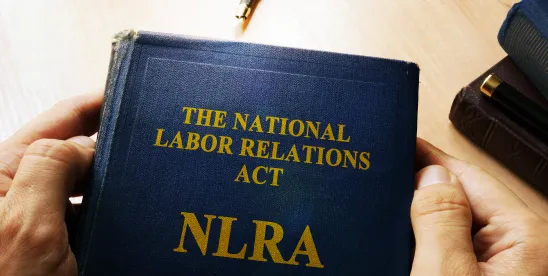On June 25, 2025, William B. Cowen, the Acting General Counsel of the National Labor Relations Board (“NLRB” or “Board”), issued GC Memorandum 25-07 to the Board’s 26 regional offices arguing that if an employer or union surreptitiously records collective bargaining negotiations then they automatically violate the National Labor Relations Act (“NLRA” or the “Act”).
While not binding law, GC Memorandum 25-07 indicates a bright-line policy priority for the NLRB General Counsel and the agency’s line prosecutors for future cases, and provides important guidance to bargaining parties for their negotiations.
The Acting GC’s rationale for this theory – which has not yet been evaluated by the NLRB or reviewing courts – is as follows:
- Section 8(d) of the NLRA imposes a mutual obligation on employers and unions to meet at reasonable times and bargain in good faith over mandatory bargaining subjects.
- The Supreme Court, in H.K. Porter Co. v. N.L.R.B., 397 U.S. 99 (1970), held that the Board’s role is to facilitate collective bargaining procedures and safeguard the process — not compel substantive outcomes and require either side to agree to a proposal.
- Several years later, the Supreme Court, in Bartlett-Collins Co., 237 NLRB 770 (1978), held that the subject of recording or transcribing CBA talks is itself a non-mandatory subject, and thus neither side could insist to impasse if the other does not consent.
- As a “natural extension” of this precedent, neither bargaining party can surreptitiously record CBA negotiations because:
- Doing so would inhibit employers and unions from engaging in open and mutually trusting talks that are “necessary for the process to function”; and
- The parties should not be permitted to do avoid the illegality of insisting to impasse on recording CBA negotiations “simply by secretly recording the same sessions.”
Additional justification for GC Memorandum 25-07, according to Acting GC Cowen, is the increased proliferation of AI and reliable personal recording devices. Cowen asserts that the basis for banning secret recordings is necessary to prevent employers and unions from creating a “culture of suspicion and fear,” where people may think their every word could be used against them, which ultimately may stifle otherwise free, productive, and collaborative dialogue.
GC Memorandum 25-07 is the second policy memorandum that Cowen has issued since rescinding several Biden-era memoranda in February, which we previously reported here.





 />i
/>i

